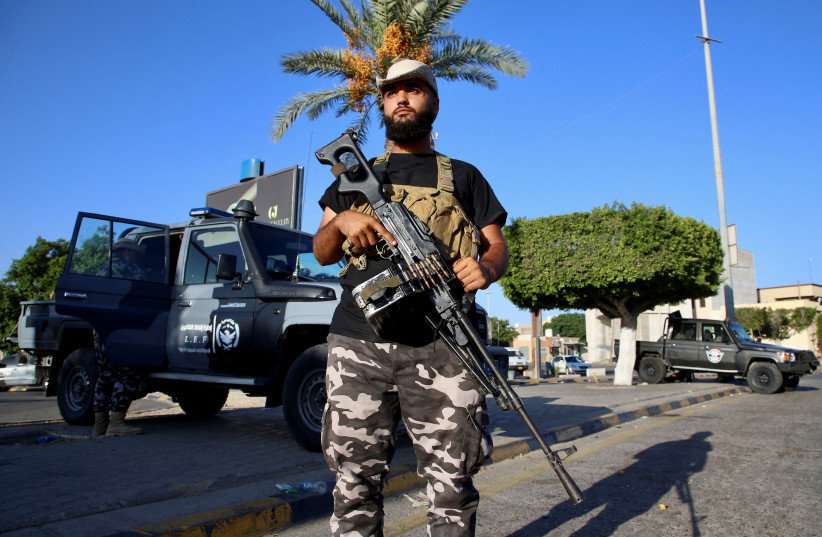At least 55 people were killed and 146 wounded in clashes between two powerful armed factions in Tripoli, the capital of Libya, last week, the country’s emergency services said in a statement on Wednesday. It was the capital’s worst violence this year.
For more stories from The Media Line go to themedialine.org
Although a truce was reached between the two factions after the clashes and Tripoli appeared calm on Wednesday, the threat of violence resuming remained high.
The fighting erupted after the commander of the 444 Brigade, Mahmoud Hamza, was detained as he attempted to travel through Tripoli’s main airport, Mitiga. He was arrested by a rival group, the Special Deterrence Force, which controls the airport.
The violence calmed following a deal reached to transfer Hamza to a neutral party, according to the state news agency LANA.
A European Union statement said the latest events were “a vivid reminder of the fragility of the security situation in Libya and the urgent need for elections in order to find a sustainable and inclusive political solution.”

Libya ravaged by a decade of civil war
Last week’s violence in Tripoli follows several months of relative calm after nearly a decade of civil war in Libya.
The two rival factions, described as the most powerful militias in Libya, are both aligned with Prime Minister Abdulhamid al-Dbeibeh’s UN-backed Government of National Unity, based in Tripoli. However, the two groups have longstanding divisions that have sparked several sporadic incidents of violence in Tripoli in recent years.
The 444 Brigade, affiliated with Libya’s defense ministry, controls large swaths of the capital and areas south of Tripoli. The Special Deterrence Force, also known by its Arabic name Al-Radaa, is an ultra-conservative militia that acts as the capital’s police force.
Oil-rich Libya has been enmeshed in chaos since the toppling of longtime dictator Muammar Gadhafi in 2011.
Since 2014, it has been divided between rival administrations in the east and the west, each supported by an array of well-armed militias and different foreign governments.
Dbeibeh’s Government of National Unity in the west is backed by Turkey, which maintains a military presence in Libya, as well as several other countries.
In Libya’s east, the rival Government of National Stability, based in the town of Sirte, is backed by military strongman Khalifa Haftar, head of the Libyan National Army, and is supported by the United Arab Emirates, Russia, and Egypt.
There has been little progress towards a lasting political solution to the conflict, and on the ground armed factions have gained official status and financing and continue to wield power.
The Government of National Unity was formed in early 2021 in an attempt to unify the rival western and eastern governments. However, in September of that year, the eastern government passed a motion of no-confidence in the unity government and voted to install its own government in Sirte. Since then, both governments have been operating simultaneously.
Last year, armed groups backing the eastern-based parliament launched an unsuccessful attempt to oust Dbeibeh, leading to a day of clashes in Tripoli in which at least 32 people were killed and 159 injured.
